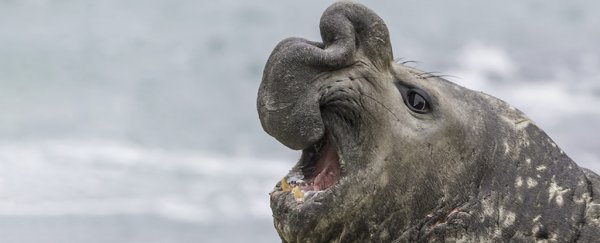Just like in humans, males across many mammal species don't live as long as their female counterparts, and it's not because they age differently, biologically speaking.
"We've known for a long time that women generally live longer than men, but were surprised to find that the [difference] in lifespan between the sexes was even more pronounced in wild mammals than in humans," says evolutionary biologist Tamás Székely from the University of Bath in the UK.
By reviewing demographic studies of wild mammal populations, Székely and fellow researchers found that females live longer in 60 percent of the 101 mammal species they considered. On average, these females lived 18.6 percent longer than males from the same species.
In humans, women live on average six to eight years longer than men, and nine out of 10 humans who make it to the age of 110 are female.
Much research has gone into trying to explain why this occurs, as it has medical and economic implications, with theories ranging from genetic to lifestyle differences. Looking at this phenomenon from a broader, mammalian-wide perspective offers more clues.
"We do not find any consistent sex differences in ageing rates," the team write in their paper.
"Thus, longer adult lifespan in females does not systematically involve a lower rate of ageing but can simply result from lower mortality at all adult ages."
Researchers previously thought this might be due to males undergoing riskier sexual-selection behaviours, like male elephant seals (Mirounga leonina) violently battling each other for mates, but the data from the new study did not support this. Other differences in behaviour between sexes could be involved.
"Female lions live together in a pride, where sisters, mothers, and daughters hunt together and look after each other, whereas adult male lions often live alone or with their brother and therefore don't have the same support network," explains Székely.
Another recent study that gathered lifespan data across 229 species including birds, insects and fish, as well as mammals, found evidence that having two of the same type of sex chromosomes offers some sort of survival advantage. In mammals, that's females, but the reverse is true in birds - males have ZZ, while the females have ZW chromosomes. And male birds tend to survive longer than females.
"They show that in XX or XY systems, the XX, or the female, lives longer, so clearly there is an effect of sex chromosomes," one of the authors of the new study, biologist Jean-Francois Lemaître from the University of Lyon, told the BBC – but this also isn't the only part of the puzzle.
"What we show in our paper is that the difference is very variable across species, meaning there are other factors that [also] need to be considered to explain this variability."
While these factors remain unclear, the team also found differences in this lifespan gap within species. Populations of bighorn sheep (Ovis canadensis) that experience environmental stress such as food shortages during harsh winters displayed a difference in lifespan between the sexes.
Males of this species can get as large as 230 kilograms (500 pounds), whereas the females only reach 91 kilograms (201 pounds), so require less resources. But the same species of sheep, in the resource-rich National Bison Range, showed no such difference in lifespan.
Examples like this lead the researchers to suspect that local environmental conditions are interacting with the costs of sexual selection and reproduction, and, in doing so, may contribute to these differences.
"By affecting males and females differently, harsh environmental conditions, such as a high prevalence in pathogens, [are] likely to cause sex-differences in lifespan," explains Székely.
The team now plans to compare this phenomenon in wild mammals against zoo-dwelling animals of the same species.
"Comparing the sex gap in lifespan and ageing across several populations of the same species is definitely full of promises," says Lemaître.
This study was published in Proceedings of the National Academy of Sciences.
